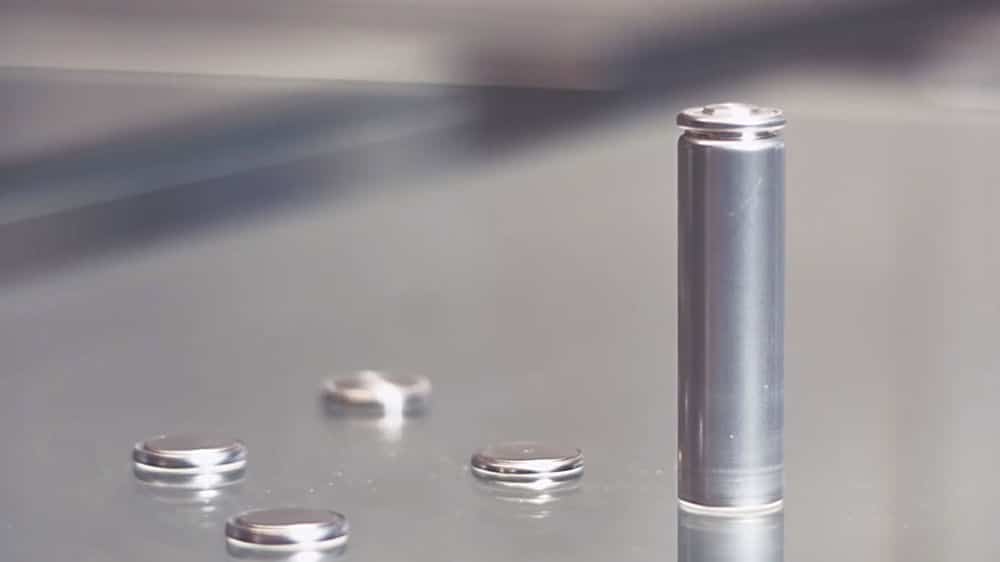Japan (Fukuoka)
Power Japan Plus has developed a powerful battery with numerous potential uses, powering everything from flashlights to electric cars. There is no active ingredient other than cotton, which has considerable implications for the sustainability of the battery – as it is both renewable and biodegradable.
The Ryden Dual Carbon Battery looks like a lithium-ion battery, but comprises a ‘dual carbon complex’ made from organic, carbon-based cotton restructured so fibres act as anodes and cathodes inside an organic electrolyte-conducting liquid.
The battery’s many advantages include cost, safety, durability, reliability, power duration and speed of charging compared with alternatives – in particular lithium ion batteries. It is also reported to be safer than conventional batteries as it maintains a constant temperature during use, and so doesn’t require an energy-draining cooling system. It charges significantly faster than traditional batteries (over 3,000 times faster) and, if used in electric cars, could allow a range of up to 300 miles. What’s more, it is 100 percent recyclable.
Professor Ishihara and Dr Takeya drew on a previous Japanese invention from the 1970s, which was never taken forward. A pilot production line has been begun and there are plans to begin manufacturing large quantities of between 500 to 5,000 batteries a month. The carbon complex technology has potential applications in healthcare and heating.
If the technology becomes widespread, there could be important implications for the cultivation and trade of cotton. Will we see energy and textile companies team up to secure a sustainable supply?
Adapted from a piece by Harriet Trefusis for the Futures Centre.
Project leader
Professor Tatsumi Ishihara and Dr Kaname Takeya, Kyushu University
Support the Atlas
We want the Atlas of the Future media platform and our event to be available to everybody, everywhere for free – always. Fancy helping us spread stories of hope and optimism to create a better tomorrow? For those able, we'd be grateful for any donation.
- Please support the Atlas here
- Thank you!



Dear sirs, I am really interested in your project, and I have a costumer who would like to buy a whole product line.
Please reply as soon as possible.
please provide me the best study material regarding high voltage electric vehicle batteries.
I am the student of M. Tech (I&C) and this topic is related to my project.
Do you guys have a battery that can be used in an electric car?
Hi. Reading about your breakthrough battery is very interesting. I have searched the web but cannot find anyone who stocks your batteries. I only find carbon-zinc batteries but from what I understand they are not the same.
Can you please put me in touch with a supplier of real dual carbon batteries?
Thank you for bringing an answer to all the current battery problems: pollution, short service life, limited charge/discharge cycles, heavy weight, low charge efficiency, temperature sensitivity, danger of exploding, attractive to theft due to use of costly metals such as lead, etc.
Good morning
I investigating the possibility /viability of Dual Carbon batteries to be used in a proposed Solar panel installation for New Zealands major museum located in Wellington New Zealand
1. Please send us more information on the non-flammable organic electrolyte with Li-ions in solution.
2. What is specific-energy achieved, so far?
3. What is the maximum continuous charge and discharge current this dual-carbon cell is capable of to retain the 3,000 cycle-life.
Dear Sirs,
I am a part of a start up in India which seeks to get an ‘ideal’ battery to power and run our passenger vehicles labelled ‘Autorickshaws’ here and commonly known as ‘Tuk Tuks’ in Southeast Asia.We will be able to consume a lot of batteries as India is a huge market for such vehicles. Besides the potentially huge market in India, Provincial as well as Federal Government have a very proactive policy for start ups in the Electric Mobility space. We foresee ourselves as important players in the Electric vehicle segment for public carriers i.e. passengers as well as cargo. Kindly reply as soon as you can.
Best part is that they are recyclable and the charge fast. Eco-friendly Batteries are going to be major drivers of sustainable future. Can we hope to see huge batteries for storing solar – renewable energy in future with service life matching solar PV???